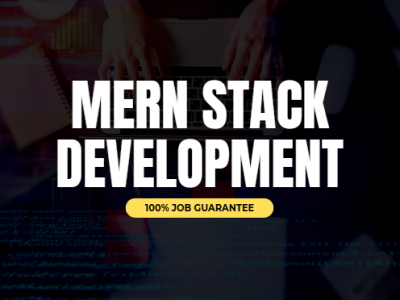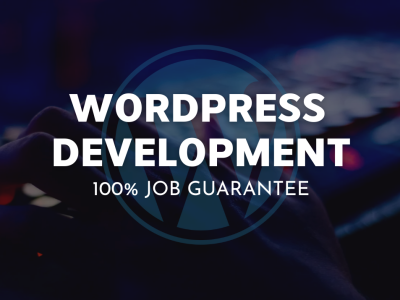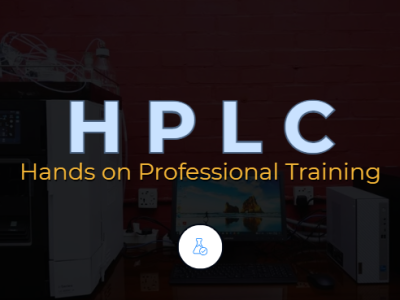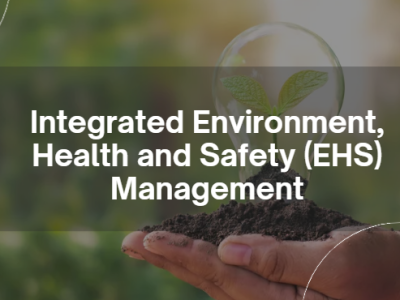Explore our comprehensive catalog of micro-credential courses designed to boost your skills and career. Flexible, industry-aligned, and recognized by employers.

Course Code: MC11010
Course Title: Digital Marketing
Start Date: November 14, 2025
Duration: 80+ hours (40 classes, 2 hours/class over 12 weeks)
Mode: Regular online classes
Class Size: 40-50 participants
Course Equivalent: 3 Credit Hours
Course Fee: Regular: 10,000 BDT; Discounted: 5,000 BDT (50% off)
Digital Marketing (MC11010) addresses the surging demand for skilled digital marketers in Bangladesh’s $500M digital advertising sector, with a 50% increase in job postings for digital marketing roles (Bdjobs.com, 2024). This course equips learners with practical skills to design and manage full-funnel marketing campaigns across platforms like Meta, TikTok, LinkedIn, and Google. Through hands-on projects, participants will master SEO, Google Ads, email automation, and analytics tools like GTM and Google Analytics, preparing for careers in digital marketing agencies, e-commerce, or freelancing, aligning with global trends in performance-driven marketing.
Week 1: Digital Marketing Fundamentals – Overview of digital marketing, STP (Segmentation, Targeting, Positioning) frameworks. Activities: Develop a campaign outline. Resources: Marketing case studies.
Week 2: Social Media Strategy (Meta) – Meta ads (Facebook, Instagram), campaign setup, content calendars. Activities: Create a Meta ad campaign. Resources: Meta Business Suite.
Week 3: Social Media Strategy (TikTok & LinkedIn) – TikTok and LinkedIn strategies, audience targeting. Activities: Design a TikTok ad, LinkedIn post. Resources: TikTok Ads Manager, LinkedIn Campaign Manager.
Week 4: SEO Fundamentals – Keyword research, on-page SEO techniques. Activities: Perform keyword analysis. Resources: Google Keyword Planner, Yoast SEO.
Week 5: Technical & Off-Page SEO – Technical SEO (site speed, schema), link building. Activities: Audit a website for SEO. Resources: Screaming Frog, Ahrefs.
Week 6: Google Ads Basics – Google Ads setup, keyword bidding, ad formats. Activities: Create a search ad campaign. Resources: Google Ads platform.
Week 7: YouTube Video Campaigns – Video ad creation, targeting, analytics. Activities: Design a YouTube ad. Resources: YouTube Ads, Google Ads.
Week 8: Email Marketing & Automation – Email campaign setup, automation workflows. Activities: Build an email sequence. Resources: Mailchimp, SendGrid.
Week 9: Affiliate Marketing – Affiliate tracking systems, performance metrics. Activities: Set up an affiliate campaign. Resources: Amazon Associates, ClickBank.
Week 10: Analytics with GTM & Google Analytics – Google Tag Manager, Google Analytics setup, tracking KPIs. Activities: Configure GTM tags. Resources: GTM, Google Analytics.
Week 11: Campaign Optimization & Reporting – Optimize campaigns, create performance reports. Activities: Analyze campaign data, draft report. Resources: Google Data Studio.
Week 12: Freelancing & Career Prep – Freelancing strategies, client pitching, CV preparation. Activities: Create a marketing proposal, draft CV. Resources: Upwork, CV templates.
Completed HSC, Bachelor’s, or Master’s degree, or current Bachelor’s students.
Basic computer literacy and internet access.
Minimum age: 18 years.
100% Job Guarantee after successful completion.
Digital marketer in agencies, e-commerce, or startups.
Freelance digital marketing consultant for global clients.
Campaign manager driving traffic, engagement, and conversions.
Professional Certificate in Digital Marketing.


Join thousands of students already enrolled

Course Code: MC15018
Course Title: MERN Stack Development
Start Date: November 14, 2025
Duration: 120+ hours (70 classes, 2 hours/class over 12 weeks)
Mode: Regular online classes
Class Size: 40-50 participants
Course Equivalent: 3 Credit Hours
Course Fee: Regular: 10,000 BDT; Discounted: 5,000 BDT (50% off)
CERTIFIED MERN Stack Development (MC15018) addresses the soaring demand for full-stack developers in Bangladesh’s $1.5B IT industry, with a 45% increase in MERN-related job postings (Bdjobs.com, 2024). This course equips learners with hands-on skills to build scalable, data-driven web applications using MongoDB, Express.js, React.js, and Node.js. Through practical projects and freelancing guidance, participants will master modern web development tools, including Tailwind CSS, TypeScript, and Mongoose, preparing for careers in IT firms, startups, or freelancing for global clients, aligning with the global shift toward dynamic web applications.
Week 1: Web Fundamentals – Overview of HTML, CSS, Tailwind CSS basics. Activities: Build a static webpage with Tailwind. Resources: VS Code, Tailwind CSS docs.
Week 2: JavaScript Basics – JS variables, conditionals, arrays, objects, functions, loops. Activities: Write basic JS scripts. Resources: MDN Web Docs.
Week 3: JavaScript Problem Solving – Problem-solving with JS, intro to map(), filter(), reduce(), arrow functions. Activities: Solve coding challenges. Resources: LeetCode, HackerRank.
Week 4: DOM & JSON – Document Object Model (DOM), JavaScript Object Notation (JSON), data fetching methods. Activities: Manipulate DOM, fetch API data. Resources: Fetch API docs.
Week 5: React Core Concepts – React components, JSX, props, state management. Activities: Build a simple React app. Resources: React.js documentation.
Week 6: React Router & State – React Router for navigation, state management with Redux. Activities: Create a multi-page React app. Resources: React Router, Redux toolkit.
Week 7: Node.js & Express Basics – Node.js setup, Express.js REST API creation. Activities: Build a basic API. Resources: Node.js, Express docs.
Week 8: MongoDB & Mongoose – MongoDB schemas, Mongoose models, CRUD operations. Activities: Design database schema, perform CRUD. Resources: MongoDB Atlas, Mongoose docs.
Week 9: Authentication & Authorization – JWT, sessions, secure login systems. Activities: Implement user authentication. Resources: JWT library.
Week 10: TypeScript & Advanced Backend – TypeScript with Node.js, advanced NoSQL backend with Mongoose. Activities: Convert API to TypeScript, optimize backend. Resources: TypeScript handbook.
Week 11: Full Stack & Advanced Project – Merge front-end (React) and back-end (Node/Express), advanced backend project. Activities: Build a full-stack app. Resources: Vercel, MongoDB Atlas.
Week 12: Deployment & Freelancing – Deploy MERN app, freelancing on Fiverr, client handling, CV preparation. Activities: Deploy app, draft CV, pitch on Fiverr. Resources: Fiverr, Upwork, CV templates.
Completed HSC, Bachelor’s, or Master’s degree, or current Bachelor’s students.
Basic computer literacy and internet access.
Minimum age: 18 years.
100% Job Guarantee after successful completion.
Full-stack developer in IT firms, agencies, or startups.
Freelance MERN stack developer for global clients.
Web app developer for data-driven, scalable applications.
Professional Certificate in MERN Stack Development.


Join thousands of students already enrolled

Course Code: MC15017
Course Title: WordPress Development
Start Date: November 14, 2025
Duration: 50+ hours (26 classes, 2 hours/class over 12 weeks)
Mode: Regular online classes
Class Size: 40-50 participants
Course Equivalent: 3 Credit Hours
Course Fee: Regular: 10,000 BDT; Discounted: 5,000 BDT (50% off)
WordPress Development (MC15017) addresses the growing demand for skilled WordPress developers in Bangladesh’s digital economy, where 40% of web development job postings require WordPress expertise (Bdjobs.com, 2024). This course equips learners with hands-on skills to build, customize, and optimize WordPress websites, including eCommerce, LMS, and booking systems. Through practical projects and freelancing guidance, participants will master tools like Elementor, WooCommerce, and REST API, preparing for careers in IT firms, freelancing, or consulting, aligning with global and local web development trends.
Week 1: Introduction to Web Development & Hosting – Web basics, hosting setup, domain management. Activities: Set up a hosting account. Resources: cPanel, hosting platforms.
Week 2: HTML & CSS Basics – HTML structure, CSS styling for WordPress customization. Activities: Create a static webpage. Resources: Code editors (VS Code).
Week 3: Bootstrap for Responsive Design – Bootstrap framework, responsive layouts. Activities: Build a responsive template. Resources: Bootstrap documentation.
Week 4: WordPress Installation & Dashboard – Install WordPress, explore dashboard. Activities: Set up a local WordPress site. Resources: WordPress software.
Week 5: Theme Setup & Customization – Theme installation, basic customization, child themes. Activities: Customize a theme. Resources: Free WordPress themes.
Week 6: Elementor Page Builder – Advanced customization with Elementor. Activities: Design a landing page. Resources: Elementor plugin.
Week 7: WooCommerce for eCommerce – Set up WooCommerce, product management. Activities: Build an online store. Resources: WooCommerce plugin.
Week 8: Payment Gateway Integration – Configure payment systems (PayPal, Stripe). Activities: Integrate a payment gateway. Resources: Payment gateway APIs.
Week 9: SEO Optimization – SEO plugins, on-page optimization techniques. Activities: Optimize a site for search engines. Resources: Yoast SEO plugin.
Week 10: Speed Optimization – Caching, image optimization, performance tools. Activities: Improve site load time. Resources: WP Rocket, Smush.
Week 11: Security & Backup Management – Secure WordPress, backup setup. Activities: Implement security plugins. Resources: Wordfence, UpdraftPlus.
Week 12: Live Project & Freelancing – Build a complete WordPress site, freelancing strategies, CV preparation. Activities: Present project, draft CV. Resources: Fiverr, Upwork, CV templates.
Completed HSC, Bachelor’s, or Master’s degree, or current Bachelor’s students.
Basic computer literacy and internet access.
Minimum age: 18 years.
100% Job Guarantee after successful completion.
WordPress developer in IT firms, agencies, or startups.
Freelance WordPress customization and development services.
eCommerce website manager for businesses.
WordPress consultant optimizing client websites.
Professional Certificate in WordPress Development.

Join thousands of students already enrolled

Course Code: MC40003
Course Title: Advanced Graphics Design
Start Date: November 14, 2025
Duration: 120 hours (12 weeks, 3–4 classes/week, 3 hours/class)
Mode: Regular online classes
Class Size: 40-50 participants
Course Equivalent: 3 Credit Hours
Course Fee: 10,000 BDT; With 50% Discount 5000 BDT
Advanced Graphics Design (MC40003) addresses the rising demand for skilled graphic designers in Bangladesh’s $1B creative industry, with a 35% increase in design-related job postings (Bdjobs.com, 2024). This course equips learners with advanced skills in Adobe Photoshop, Illustrator, and AI tools like Adobe Firefly, focusing on creating professional assets for social media, branding, and print. Through hands-on projects and freelancing guidance, participants will build a Behance portfolio, preparing for careers in graphic design, branding, and freelancing, aligning with Bangladesh’s growing digital creative economy.
Week 1: Photoshop Fundamentals – Intro to Photoshop, brush/pen tools, basic image manipulation. Activities: Create simple designs, practice brush techniques. Resources: Adobe Photoshop.
Week 2: Advanced Photoshop Techniques – Advanced blend techniques, hair masking, action work. Activities: Retouch product images. Resources: Sample images.
Week 3: Typography & Social Media Design – Photoshop typography, YouTube thumbnails, social media assets. Activities: Design text-based posters, create thumbnails. Resources: Photoshop fonts.
Week 4: Print Design in Photoshop – Business/visiting cards, flyer creation. Activities: Design print-ready cards and flyers. Resources: Templates. 🖨️
Week 5: Mock-ups & Portfolio Building – Intro to mock-ups, Behance portfolio setup. Activities: Create mock-ups, start portfolio. Resources: Behance platform.
Week 6: AI in Design – Adobe Firefly, introduction to other AI tools. Activities: Generate AI-assisted designs. Resources: Adobe Firefly.
Week 7: Illustrator Basics – Intro to Illustrator, gradient techniques, stroke plate details. Activities: Create vector graphics. Resources: Adobe Illustrator.
Week 8: Advanced Illustrator Tools – Mesh tool, Pathfinder operations, advanced typography. Activities: Design complex vectors, typographic layouts. Resources: Illustrator tools.
Week 9: Logo Design – Principles of logo design, brand identity creation. Activities: Design professional logos. Resources: Case studies.
Week 10: Flyer & Brochure Design – Flyer and brochure creation in Illustrator. Activities: Produce multi-page brochures. Resources: Templates.
Week 11: Product Packaging – Packaging design principles and execution. Activities: Create product packaging mock-ups. Resources: Sample products.
Week 12: Freelancing & Career Prep – Freelancing strategies, CV making, portfolio presentation. Activities: Finalize portfolio, draft CV, present projects. Resources: Upwork guidelines, CV templates.
Basic computer literacy and familiarity with design concepts.
Access to Adobe Photoshop and Illustrator (trial or licensed).
Minimum age: 18 years.
Graphic Designer in social media, print, or branding.
Brand Identity Designer for logos and packaging.
Freelance Designer creating thumbnails, presentations, and merchandise.
Career placement support through BdCalling Academy.
Professional Certificate in Advanced Graphics Design.

Join thousands of students already enrolled

50% Job Guaranty: HR for Manufacturing Excellence – Integrating People & Processes
Course Code: MC11002
Course Title: Job Guaranty: HR for Manufacturing Excellence – Integrating People & Processes
Start Date: October 1, 2025
Duration: 12 weeks (72 hours total, 6 hours/weekend)
Mode: Hybrid (12 in-person + 12 virtual classes)
Class Size: Max 30 participants
Course Equivalent: 3 Credit Hours
Course Fee: 15,000 BDT
Course Description
Job Guaranty: HR for Manufacturing Excellence – Integrating People & Processes ( MC11002) addresses the critical demand for HR professionals skilled in aligning human resources with manufacturing goals, with 78% of manufacturers reporting HR-process misalignment (2023 Industry Survey) and a 40% rise in HRBP job postings (LinkedIn 2023). This course equips participants with expertise in workforce planning, compliance, and lean HR strategies tailored for production settings. Through a capstone project and hands-on training, learners will be prepared for high-demand roles in manufacturing HR, with a 50% job guaranty upon successful completion.
Syllabus 📚\
Module 1: HR in Manufacturing – HR’s role in factories. Activities: Case study analysis.
Module 2: Workforce Planning – Aligning HR with factory layouts. Activities: Layout simulation.
Module 3: Recruitment – Hiring for manufacturing roles. Activities: Job description workshop.
Module 4: Training & Development – Skill-building programs. Activities: Training plan design.
Module 5: Compensation – Productivity incentives. Activities: Incentive structure exercise.
Module 6: Performance Management – Metrics and appraisals. Activities: KPI development.
Module 7: Labor Laws – Compliance with regulations. Activities: Compliance checklist creation.
Module 8: Safety & Ergonomics – Workplace safety protocols. Activities: VR safety training.
Module 9: HR Technology – HRIS in smart factories. Activities: SAP HR demo.
Module 10: Employee Engagement – Retention strategies. Activities: Engagement survey design.
Module 11: Crisis Management – Handling disruptions. Activities: Crisis scenario role-play.
Module 12: Strategic HR – Future trends. Activities: Trend analysis discussion.
Capstone: Real-world HR strategy project with presentation.
Entry Requirements
Basic HR knowledge\
Minimum age: 25 years
Career Pathways
HR Business Partner (Manufacturing)\
Production HR Manager\
Lean Manufacturing Consultant\
Job guarantee for best 50% of total enrollment.


Join thousands of students already enrolled

Retail Sales Excellence - Student Registration 💼
Course Code: M11003
Course Title: Retail Sales Excellence
Start Date: October 1, 2025 📅
Duration: 6 learning days (12 hours total, 2 hours/session) ⏰
Mode: Offline (in-person classroom + outdoor market visits) 🌐
Class Size: 25-30 participants 👥
Course Equivalent: 1 Credit Hour
Course Fee: 4,000 BDT (discounted from 6,000 BDT) 💸
Course Description 🚀
Retail Sales Excellence (M11003) taps into the vast opportunities in Bangladesh’s largest job sector—sales—equipping final-year students and fresh graduates with practical skills for entry-level roles in retail, FMCG, and telco industries. Through hands-on classroom sessions, market visits, and real-world assignments, participants will master sales fundamentals, distributor and outlet management, people leadership, and business development. This course ensures graduates are hire-ready, with the confidence and expertise to excel in dynamic corporate environments. 🌟
Syllabus 📚
Class 1: Sales Fundamentals
Sales as a career, psychology of selling, value chain, stakeholders. Activities: Group discussion, role-play. 📈
Class 2: Distributor Management
Investment, ROI, stock/godown management, handling bad goods. Activities: Case study analysis. 📦
Class 3: Outlet Management
Availability, visibility, credit management, relationship building. Activities: Simulation exercises. 🏬
Class 4: Outdoor Assignment
Market/distributor/outlet visit. Activities: Fieldwork, observation report. 🚶♂️
Class 5: People Management
Target setting, coaching, incentive design, team building. Activities: Leadership scenario planning. 🤝
Class 6: Business Development
Market intelligence, local growth strategies. Activities: Final presentation, written exam. 🎤
Entry Requirements 📋
Minimum 2nd-year undergraduate student status.
Interest in sales and corporate roles.
Minimum age: 18 years.
Career Pathways 🚀
Territory Officer (TO) or Territory Manager (TM).
Entry-level roles in FMCG, telco, retail sectors.

Join thousands of students already enrolled


Micro-Credential Course: Let’s Be the Advocate - Pathway to Enrolled Membership in the Bangladesh Bar Council ⚖️
Course Code: MC 042 004
Course Title: Let’s Be the Advocate: Pathway to Enrolled Membership in the Bangladesh Bar Council
Start Date: July 15, 2025 📅
Duration: 12 Weeks (36 hours total) ⏳
Mode: Online/Hybrid (Live lectures, recorded sessions, interactive workshops) 🌐
Class Size: 25-30 participants 👩⚖️👨⚖️
Course Equivalent: 2 Credit Hours
Course Fee: Regular: 18000 BDT; Discount: 4000 BDT
Course Description 📚
The legal profession in Bangladesh demands rigorous training and success in the Bangladesh Bar Council Enrollment Examination. Let’s Be the Advocate (MC 042 004) is designed for law graduates, alumni, and candidates seeking structured guidance to qualify as enrolled advocates. Surveys highlight a strong need for preparatory courses focusing on the exam structure, legal ethics, professional responsibilities, and practical advocacy skills. This course bridges the gap between legal education and professional practice, preparing you for the Enrollment Examination and real-world legal challenges! 🚀
Syllabus 📖
Introduction to Bangladesh Bar Council: Overview of Bar Council Act, rules, eligibility, and application process. 📜
Professional Ethics: Code of Conduct for advocates and resolving ethical dilemmas. 🤝
Legal Drafting & Pleadings: Techniques for legal drafting, writ petitions, and pleadings preparation. ✍️
Civil & Criminal Procedure: Master Code of Civil Procedure (CPC), Code of Criminal Procedure (CrPC), and advocacy skills. ⚖️
Legal Interpretation & Constitutional Law: Statute interpretation, fundamental rights, and judicial review. 📘
Mock Advocacy & Case Studies: Practice simulated court arguments and analyze landmark cases. 🗣️
Entry Requirements 📋
LLB (Honors) or equivalent law degree.
Eligibility for the Bar Council Enrollment Examination.
Career Pathways 💼
Practice as an enrolled advocate in lower courts and Supreme Court.
Specialize in corporate, criminal, or constitutional law, or financial corporations’ legal sections.
Pursue roles in legal consultancy, judiciary, or government agencies.
Prepare for the Bangladesh Judicial Service Examination.






Join thousands of students already enrolled


Commercial Production of Orchids Through Tissue Culture
Course Code: MC55007
Course Title: Commercial Production of Orchids Through Tissue Culture
Start Date: September 20, 2025 📅
Duration: 26 hours (13 weeks, 2 hours/week) ⏰
Mode: Primarily in-person, with occasional online sessions 🌐
Class Size: 10-30 participants 👥
Course Equivalent: 2 Credit Hours
Course Fee: 5,000 BDT (Special Offer: 3,000 BDT with 40% discount) 💸
Course Description 🚀
Commercial Production of Orchids Through Tissue Culture (MC55007) addresses the surging demand for high-quality orchids in Bangladesh, with a 30% market increase reported by the Bangladesh Florist Association (2022). This course equips learners with hands-on skills in orchid micropropagation using tissue culture, focusing on standardized protocols to meet commercial standards. Through practical training and entrepreneurial guidance, participants will be prepared for careers in floriculture, biotechnology, or agri-entrepreneurship, contributing to Bangladesh’s growing $50M floriculture industry (BARI, 2021). 🌺
Syllabus 📚
Week 1: Introduction to Orchids & Tissue Culture – Orchid significance, tissue culture overview. Activities: Analyze market trends. Resources: Reference books. 🌸
Week 2: Orchid Biology – Morphology, life cycle, explant sources. Activities: Identify orchid parts. Resources: Microscope, slides. 🌱
Week 3: Lab Setup – Lab zoning, equipment overview. Activities: Tour lab setup. Resources: Laminar airflow cabinet, autoclave. 🧪
Week 4: Media Preparation – Growth regulators, nutrients, pH adjustment. Activities: Prepare MS media. Resources: pH meter, chemicals. 🧫
Week 5: Sterilization Techniques – Autoclaving, chemical sterilization. Activities: Sterilize explants. Resources: Bleach, ethanol. 🧴
Week 6: Tissue Culture Process – Explant initiation, shoot multiplication. Activities: Initiate culture. Resources: Incubator. 🌿
Week 7: Culture Maintenance – Contamination control, hardening. Activities: Monitor cultures. Resources: Humidity chambers. 🛡️
Week 8: Hardening & Acclimatization – Plantlet transfer, nutrient management. Activities: Practice hardening. Resources: Substrates. 🌱
Week 9: Field Transfer – Substrates, post-transfer care. Activities: Transfer plantlets. Resources: Greenhouse materials. 🌍
Week 10: Entrepreneurship – Market analysis, costing, branding. Activities: Draft business plan. Resources: Case studies. 💼
Week 11: Project Writing – Develop entrepreneurial project proposal. Activities: Write project plan. Resources: Templates. 📝
Week 12: Field Visit – Observe commercial orchid production. Activities: Visit nursery. Resources: Transport. 🚐
Week 13: Revision & Assessment – Review, final project submission. Activities: Present project. Resources: Evaluation rubrics. 🎯
Entry Requirements 📋
Higher Secondary Certificate (HSC) or equivalent.
Background in Biotechnology, Microbiology, Agriculture, or related fields.
Basic understanding of plant biology, microbiology, and lab safety.
Minimum age: 19 years.
Career Pathways 🚀
Tissue culture specialist, orchid nursery manager, floriculture consultant.
Agri-entrepreneur in orchid production or export businesses.
Higher studies in Plant Biotechnology, Horticulture, or Agricultural Sciences.
Professional Certificate in Orchid Tissue Culture.



Join thousands of students already enrolled


Commercial Production of Disease-Free Banana Seedlings Through Tissue Culture
Course Code: MC55005
Course Title: Commercial Production of Disease-Free Banana Seedlings Through Tissue Culture
Start Date: September 20, 2025 📅
Duration: 26 hours (13 weeks, 2 hours per class) ⏰
Mode: Blended (primarily in-person, occasional online sessions) 🌐
Class Size: 20 participants 👥
Course Equivalent: 2 Credit Hours
Course Fee: 5,000 BDT (3,000 BDT with 40% early registration discount) 💸
Course Description 🚀
Commercial Production of Banana Through Tissue Culture (MC55005) addresses the critical need for disease-free, high-yielding banana planting materials in Bangladesh, where bananas account for 40% of fruit production but face yield losses from diseases (BBS, 2022). With tissue culture boosting yields by 30–50% (BARI, 2022), this course equips learners with practical skills to produce quality banana plantlets, meeting the demand for skilled technicians noted by BHTPA (2022). Through lab work, fieldwork, and entrepreneurial training, participants will drive agri-biotech innovation and agribusiness growth. 🌟
Syllabus 📚\
Week 1: Intro to Banana Tissue Culture – Industry overview, benefits. Activities: Market discussion. Resources: BARI reports. 🍌\
Week 2: Banana Biology – Morphology, life cycle, cultivars. Activities: Cultivar identification quiz. Resources: Plant Propagation by Tissue Culture. 📖\
Week 3: Lab Setup – Design, clean zones, equipment. Activities: Lab planning. Resources: Laminar airflow, autoclave. 🧪\
Week 4: Equipment & Safety – Autoclave, pH meter, safety protocols. Activities: Equipment demo. Resources: PPE, culture vessels. 🧤\
Week 5: Media Preparation – MS media, growth regulators. Activities: Media formulation lab. Resources: Agar, sucrose. 🧫\
Week 6: Tissue Culture – Explant sterilization, inoculation. Activities: Shoot multiplication lab. Resources: Laminar airflow. 🌱\
Week 7: Incubation – Light, temperature, humidity control. Activities: Growth monitoring. Resources: Incubators. 🌡️\
Week 8: Disease Management – Pathogen detection, control. Activities: Contamination lab. Resources: Diagnostic tools. 🔍\
Week 9: Hardening – Acclimatization, shade house setup. Activities: Hardening practice. Resources: Potting mixtures. 🏡\
Week 10: Field Transfer – Planting, irrigation, pest management. Activities: Field visit. Resources: Partner farms. 🚜\
Week 11: Entrepreneurship – Nursery setup, cost analysis. Activities: Business plan workshop. Resources: BHTPA schemes. 💼\
Week 12: Market Development – Marketing, export strategies. Activities: Market linkage plan. Resources: Export guidelines. 📈\
Week 13: Project Writing – Nursery proposal presentation. Activities: Proposal submission. Resources: Project templates. 📝
Entry Requirements 📋\
HSC or equivalent; preferably in biotechnology, agriculture, horticulture.
Basic knowledge of plant biology, microbiology, lab safety.
Minimum age: 19 years.
Career Pathways 🚀\
Tissue culture technicians, nursery managers.
Agri-biotech entrepreneurs, extension officers.
Roles in ACI, Lal Teer, BADC projects.
MSc/PhD in plant biotechnology, horticulture.
Professional Certificate in Banana Tissue Culture.




Join thousands of students already enrolled


Entrepreneurship Development of Disease-Free Potato Seed Through Tissue Culture
Course Code: MC55004
Course Title: Entrepreneurship Development of Disease-Free Potato Seed Through Tissue Culture
Start Date: September 20, 2025 📅
Duration: 26 hours (13 weeks, 2 hours per class) ⏰
Mode: Blended (primarily in-person, occasional online sessions) 🌐
Class Size: 20 participants 👥
Course Equivalent: 2 Credit Hours
Course Fee: 5,000 BDT (3,000 BDT with 40% early registration discount) 💸
Course Description 🚀
Entrepreneurship Development of Disease-Free Potato Seed Through Tissue Culture (MC55004) addresses the critical need for disease-free potato seeds in Bangladesh, where 60% of farmers face yield losses due to seed-borne diseases (BARI, 2022). This course equips learners with practical tissue culture skills to produce high-quality potato seeds, meeting the 70% shortage of trained technicians reported by the Bangladesh Tissue Culture Association (2023). Through lab work, fieldwork, and entrepreneurial training, participants will drive agricultural innovation and agribusiness opportunities. 🌟
Syllabus 📚\
Week 1: Intro to Potato Seed Production – Potato’s role, tissue culture benefits. Activities: Market analysis. Resources: BARI reports. 🥔\
Week 2: Potato Biology – Morphology, life cycle, healthy explants. Activities: Plant identification quiz. Resources: Plant Propagation by Tissue Culture. 📖\
Week 3: Lab Design – Lab zones, workflow. Activities: Layout planning. Resources: Laminar airflow, autoclave. 🧪\
Week 4: Equipment Use – Autoclave, pH meter, microscope. Activities: Equipment demo. Resources: Culture vessels. 🛠️\
Week 5: Chemical Safety – Handling agar, MS salts. Activities: Safety protocol practice. Resources: PPE, chemicals. 🧤\
Week 6: Sterilization – Autoclaving, explant sterilization. Activities: Sterilization lab. Resources: Sodium hypochlorite. 🧫\
Week 7: Media Preparation – MS media, growth regulators. Activities: Media formulation. Resources: Sucrose, agar. 🌱\
Week 8: Tissue Culture – Explant inoculation, subculturing. Activities: Shoot regeneration lab. Resources: Laminar airflow. 🌿\
Week 9: Incubation – Light, temperature, humidity control. Activities: Growth monitoring. Resources: Incubators. 🌡️\
Week 10: Disease Management – Pathogen detection, quality assurance. Activities: Contamination lab. Resources: Testing kits. 🔍\
Week 11: Hardening – Acclimatization, polyhouse use. Activities: Hardening practice. Resources: Greenhouse materials. 🏡\
Week 12: Field Transfer – Planting, post-care. Activities: Field visit. Resources: Partner farms. 🚜\
Week 13: Entrepreneurship – Business planning, market linkages. Activities: Proposal presentation. Resources: DAE funding schemes. 💼
Learning Outcomes ✅
Participants will:
Apply tissue culture principles for potato seed production. 🌱
Prepare media and use aseptic techniques per lab standards. 🧫
Operate and maintain tissue culture equipment. 🛠️
Manage contamination and ensure quality control. 🔍
Optimize incubation conditions for plantlet growth. 🌡️
Diagnose potato pathogens using standard methods. 🦠
Harden and transfer plantlets to field conditions. 🏡
Develop entrepreneurial plans for seed production. 💼
Align with local/international seed standards. ✅
Establish or contribute to tissue culture labs. 🏭
Target Audience 🎓\
Final-year diploma/undergraduate students in agriculture, biotechnology.
Early-career professionals, lab technicians, agripreneurs.
Entry Requirements 📋\
HSC or equivalent; preferably in biotechnology, agriculture.
Basic knowledge of plant biology, microbiology, lab safety.
Minimum age: 19 years.
Career Pathways 🚀\
Agri-biotech entrepreneurs, seed enterprise managers.
Roles in ACI, BADC, government projects.
MSc/PhD in plant biotechnology, seed science.
Professional Certificate in Potato Tissue Culture.
Research assistants, lab technologists in seed production.




Join thousands of students already enrolled


Commercial Production of Mushroom Through Tissue Culture - Registration 🍄
Course Code: MC55003
Course Title: Commercial Production of Mushroom Through Tissue Culture
Start Date: September 20, 2025 📅
Duration: 26 hours (13 weeks, 2 hours per class) ⏰
Mode: Blended (primarily in-person, occasional online sessions) 🌐
Class Size: 20 participants 👥
Course Equivalent: 2 Credit Hours
Course Fee: 5,000 BDT (3,000 BDT with 40% early registration discount) 💸
Course Description 🚀
Commercial Production of Mushroom Through Tissue Culture (MC55003) addresses the 25% rise in mushroom demand in Bangladesh (DAE, 2022) and the shortage of skilled technicians in tissue culture, as noted by BARI (2021-22). This course equips learners with hands-on skills in producing high-quality mushroom spawn using tissue culture, supporting year-round cultivation and agri-biotech growth (BHTPA, 2022). Through lab work and fieldwork, participants will master mycelium propagation and commercial production, preparing for careers in mushroom farming, spawn labs, and agripreneurship. 🌟
Syllabus 📚\
Week 1: Intro to Mushroom Cultivation – Industry overview, mushroom benefits. Activities: Market analysis discussion. Resources: DAE reports. 🍄\
Week 2: Mushroom Biology – Life cycle, mycelium development. Activities: Morphology quiz. Resources: Stamets’ The Mushroom Cultivator. 📖\
Week 3: Lab Setup – Tissue culture lab design, equipment. Activities: Lab layout planning. Resources: Laminar airflow, autoclave. 🧪\
Week 4: Sterilization & Safety – Aseptic techniques, PPE. Activities: Sterilization demo. Resources: Safety protocols. 🧤\
Week 5: Media Preparation – PDA, MEA formulation, pH adjustment. Activities: Media prep lab. Resources: Agar, peptone. 🧫\
Week 6: Tissue Culture Techniques – Explant selection, inoculation. Activities: Mycelium culturing. Resources: Incubation chambers. 🌱\
Week 7: Disease Management – Contamination detection, control. Activities: Disease identification lab. Resources: Testing kits. 🔍\
Week 8: Acclimatization – Hardening, substrate adaptation. Activities: Hardening practice. Resources: Substrate samples. 🌿\
Weeks 9-10: Commercial Cultivation – Substrate prep, spawning, harvesting. Activities: Bagging demo. Resources: Straw, sawdust. 🛠️\
Week 11: Entrepreneurship – Costing, market linkages, export. Activities: Business plan workshop. Resources: BHTPA reports. 💼\
Week 12: Field Visit – Commercial farm tour. Activities: On-site observation. Resources: Partner farms. 🚜\
Week 13: Project Writing – IYCF program proposal. Activities: Proposal presentation. Resources: Project templates. 📝
Learning Outcomes ✅
Participants will:
Explain mushroom morphology and life cycle. 📚
Design and maintain a tissue culture lab. 🧪
Operate lab equipment for spawn production. 🛠️
Prepare and optimize culture media. 🧫
Apply aseptic techniques for mycelium propagation. 🌱
Control incubation conditions (light, temperature, humidity). 🌡️
Detect and manage contamination/diseases. 🔍
Acclimatize mycelium for substrate cultivation. 🌿
Plan commercial mushroom production. 🏭
Develop entrepreneurial skills for mushroom ventures. 💼
Apply standards for local/export markets. ✅
Target Audience 🎓\
Biotechnology, microbiology, agriculture students.
Mushroom farmers, agripreneurs, lab technicians.
Agri-biotech/food processing professionals.
Entry Requirements 📋\
HSC or equivalent; preferably in biotechnology, agriculture, or related fields.
Basic knowledge of plant/fungal biology and lab safety.
Minimum age: 19 years.
Career Pathways 🚀\
Mushroom production specialists, spawn lab managers.
Agri-biotech entrepreneurs, extension workers.
Roles in ACI Agribusiness, government projects.
MSc/PhD in mycology, agricultural biotechnology.
Professional Certificate in Mushroom Tissue Culture.




Join thousands of students already enrolled


Commercial Production of Gerbera Seedlings Through Tissue Culture
Course Code: MC55006
Course Title: Commercial Production of Gerbera Seedlings Through Tissue Culture
Start Date: September 20, 2025 📅
Duration: 26 hours (13 weeks, 2 hours per class) ⏰
Mode: Blended (primarily in-person, occasional online sessions) 🌐
Class Size: 20 participants 👥
Course Equivalent: 2 Credit Hours
Course Fee: 5,000 BDT (3,000 BDT with 40% early registration discount) 💸
Course Description 🚀
Commercial Production of Gerbera Through Tissue Culture (MC55006) addresses the rising demand for high-quality Gerbera plants in the $53.9B global floriculture market, projected to grow at 5.9% CAGR by 2030 (Grand View Research, 2022). In India, a 2021 ICAR-IIHR survey notes 65% of growers seek tissue culture training to enhance production. This course equips learners with practical skills in Gerbera micropropagation, fostering expertise for floriculture careers and agri-entrepreneurship in Bangladesh’s growing biotech sector. 🌟
Syllabus 📚\
Week 1: Intro to Gerbera Tissue Culture – Floriculture overview, benefits. Activities: Market discussion. Resources: ICAR-IIHR reports. 🌸\
Week 2: Gerbera Biology – Morphology, life cycle, varietal selection. Activities: Varietal quiz. Resources: Plant Propagation by Tissue Culture. 📖\
Week 3: Lab Design – Layout, clean zones, infrastructure. Activities: Lab planning. Resources: Laminar airflow, autoclave. 🧪\
Week 4: Equipment & Safety – Autoclave, pH meter, safety protocols. Activities: Equipment demo. Resources: PPE, culture vessels. 🧤\
Week 5: Media Preparation – MS media, growth regulators. Activities: Media formulation lab. Resources: Agar, sucrose. 🧫\
Week 6: Tissue Culture – Explant sterilization, inoculation. Activities: Multiplication lab. Resources: Laminar airflow. 🌱\
Week 7: Incubation – Light, temperature, humidity control. Activities: Growth monitoring. Resources: Incubators. 🌡️\
Week 8: Disease Management – Contaminant detection, control. Activities: Contamination lab. Resources: Diagnostic tools. 🔍\
Week 9: Hardening – Acclimatization, greenhouse setup. Activities: Hardening practice. Resources: Potting mixtures. 🏡\
Week 10: Field Transfer – Transplanting, soil management. Activities: Field visit. Resources: Partner nurseries. 🚜\
Week 11: Entrepreneurship – Nursery setup, cost analysis. Activities: Business plan workshop. Resources: BHTPA schemes. 💼\
Week 12: Market Development – Marketing, export strategies. Activities: Market linkage plan. Resources: Export guidelines. 📈\
Week 13: Project Writing – Nursery proposal presentation. Activities: Proposal submission. Resources: Project templates. 📝
Learning Outcomes ✅
Participants will:
Apply tissue culture techniques for Gerbera propagation. 🌱
Prepare and sterilize media per lab protocols. 🧫
Use and maintain tissue culture equipment. 🛠️
Manage contaminants and disorders in culture. 🔍
Optimize incubation conditions for plantlet growth. 🌡️
Harden and transfer plantlets to field conditions. 🏡
Develop entrepreneurial plans for Gerbera nurseries. 💼
Align with floriculture industry standards. ✅
Target Audience 🎓\
Students in agriculture, horticulture, biotechnology.
Nursery managers, floriculture professionals, agripreneurs.
Entry Requirements 📋\
HSC or equivalent; preferably in biotechnology, agriculture, horticulture.
Basic knowledge of plant biology, microbiology, lab safety.
Minimum age: 19 years.
Career Pathways 🚀\
Tissue culture specialists, nursery managers.
Floriculture entrepreneurs, export consultants.
Roles in ACI, local nurseries, government projects.
MSc/PhD in plant biotechnology, floriculture.
Professional Certificate in Gerbera Tissue Culture.




Join thousands of students already enrolled

Principles of Investment and Portfolio Management
Course Code: MC11006
Course Title: Principles of Investment and Portfolio Management
Start Date: September 20, 2025 📅
Duration: 25 hours (25 classes, 1 hour each) ⏰
Mode: Blended (in-person + online sessions) 🌐
Class Size: 25 participants 👥
Course Equivalent: 1 Credit Hour
Course Fee: 3000 BDT 💸
Course Description 🚀
Principles of Investment and Portfolio Management (MC11006) addresses the growing demand for skilled professionals in Bangladesh’s capital markets, where many investors face losses due to limited knowledge, as per a DIU survey and BICM course statistics (2024). This course equips students and investors with foundational skills in investment analysis, portfolio construction, and market trends. Through practical tools like fundamental/technical analysis and demo trading, participants will learn to make data-driven decisions, enhancing employability and wealth-building potential in dynamic financial environments. 🌟
Syllabus 📚\
Learning Outcomes ✅
Participants will:
Explain investment concepts (risk, return, diversification). 📚
Analyze stocks, bonds, and mutual funds. 📈
Evaluate opportunities with fundamental/technical tools. 🔍
Build diversified portfolios aligned with goals. 💼
Assess performance using beta, ratios, and metrics. 📊
Interpret market trends for decision-making. 🌍
Target Audience 🎓\
Business & Economics students (undergraduates/graduates).
General investors seeking wealth-building skills.
Entry Requirements 📋\
Current undergraduates or graduates in Business Department.
Minimum age: 20 years.
Career Pathways 🚀\
Jobs: Roles in merchant banks, broker houses, asset management firms (e.g., UCB Investment Ltd.).
Business: Investing in Dhaka/Chattogram Stock Exchanges, forex, international markets.
Advanced certifications in portfolio management or CFA.
Professional Certificate in Investment and Portfolio Management.



Join thousands of students already enrolled


Hands on Professional Training on HPLC: Your Gateway to Analytical Excellence - Batch 3
Course Code: MC29001
Course Title: Hands on Professional Training on HPLC: Your Gateway to Analytical Excellence
Start Date: January 17, 2026 📅
Duration: 40 hours (5 days) ⏰
Mode: In-person (interactive lectures, hands-on lab sessions, data analysis workshops) 🧑🔬
Class Size: 20 participants 👥
Course Equivalent: 2 Credit Hours
Course Fee: Regular: 10,000 BDT; Discount Price: 4,000 BDT
Course Description 🚀
Hands on Professional Training on HPLC: Your Gateway to Analytical Excellence (MC29001) meets the soaring demand for skilled High-Performance Liquid Chromatography (HPLC) professionals, with over 70% of analytical job postings in pharmaceuticals, biotechnology, and food safety requiring HPLC expertise. This intensive 5-day course offers hands-on training in operating HPLC systems, method development, sample analysis (pharmaceuticals, foods, herbal products), and troubleshooting. Aligned with industry standards, it prepares participants for quality control, research, or regulatory roles in high-growth sectors. 🌟
Learning Outcomes ✅
Participants will:
Explain HPLC principles and instrumentation. 📘
Prepare and analyze pharmaceutical/biological samples. 🧑🔬
Interpret chromatographic data accurately. 📊
Troubleshoot HPLC operational challenges. 🔍
Apply HPLC techniques in pharma, food, biotech, and research. 🧬
Target Audience 🎓\
3rd-year+ students in Pharmacy, Genetic Engineering, Biotechnology, Nutrition, Food Engineering, Agricultural Science.
Graduates and early-career professionals seeking analytical skills.
Entry Requirements 📋\
Foundational knowledge in analytical chemistry.
3rd-year+ students in Health or Medical Sciences.
Minimum age: 20 years.
Career Pathways 🚀\
Analytical Chemist, Quality Control Analyst.
Research Scientist in pharma, food, biotech.
Roles in advanced health/life sciences research.
Professional Certificate in HPLC Analytical Techniques.





Join thousands of students already enrolled


Integrated Environment, Health and Safety (EHS) Management
Course Code: MC 30 001
Course Title: Integrated Environment, Health and Safety (EHS) Management
Start Date: May 30, 2025 📅
Duration: 10 weeks (30 contact hours + field visit) ⏰
Mode: Blended (in-person + online) 🌐
Class Size: Max 25 participants 👥
Course Equivalent: 2 Credit Hours
Course Fee: 3,750 BDT (75% discount for DIU students, regular 12,000 BDT) 💸
Course Description 🌱
Integrated Environmental Management: Theory, Tools, and Applications (MC 30 001) addresses the rising demand for expertise in environmental management, driven by Bangladesh’s SDG commitments, Blue Economy goals, and stricter EIA regulations. This course equips learners with practical skills in GIS, EIA, environmental auditing, and sustainability strategies, meeting the needs of organizations like WaterAid, ESDO, and CEGIS. Through workshops, GIS labs, case studies, and a capstone project, participants will bridge the skills gap, preparing for high-demand roles in sustainability, policy, and environmental consulting. 🚀
Syllabus 📚
Foundations of Environmental Management: Ecological, economic, social sustainability. 🌍
GIS & AI in Decision-Making: Climate risk, resource assessments. 🗺️
Environmental Impact Assessment & Auditing: EIA, ISO 14001 compliance. 📋
Policy, Governance & Ethics: National/international frameworks, ESG. ⚖️
Circular & Blue Economy Strategies: Waste-to-wealth, marine management. ♻️
Field Visit / Capstone Project: Solve real-world environmental problems. 🏞️
Learning Outcomes ✅
Participants will:
Conduct GIS-based climate and resource assessments. 🗺️
Implement ISO 14001-compliant management systems and audits. ✅
Align policies with SDGs, ESG, and ethical standards. ⚖️
Design waste-to-wealth and Blue Economy models. ♻️
Perform HIRA and ERA/EIA assessments. 🔍
Manage industrial environment, health, and safety. 🦺
Target Audience 🎓
Final-year students/graduates in Environmental Science, Engineering, Economics, GIS.
Corporate sustainability officers, compliance specialists.
Government officials, policymakers, NGO/development professionals.
Academicians/researchers in environmental policy/technology.
Entry Requirements 📋
Bachelor’s (ongoing/completed) in Engineering or related discipline, or Diploma with environmental experience.
Basic environmental science knowledge, computer literacy.
GIS familiarity (preferred, not mandatory).
Minimum age: 18 years.
Career Pathways 🚀
Sustainability Officer, ESG Analyst, ISO Auditor.
Environmental Consultant, GIS Analyst, EIA Specialist.
Policy Analyst, Development Officer, Waste Management Specialist.
Marine Resource Planner, Climate Project Officer.



Join thousands of students already enrolled
Try adjusting your filters to see more courses.
